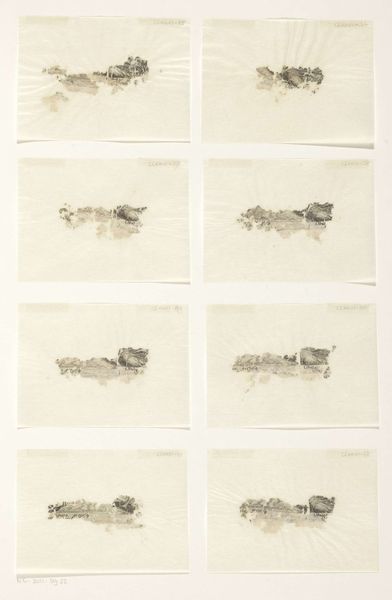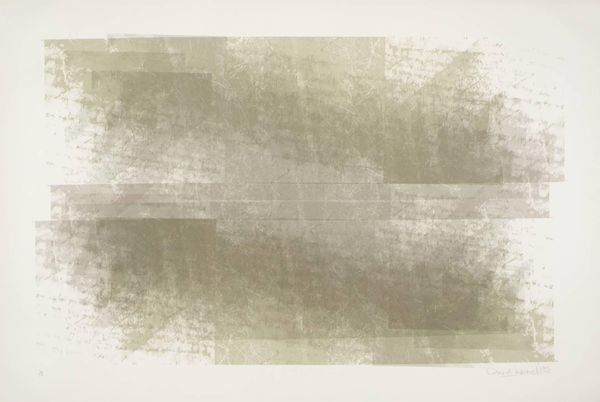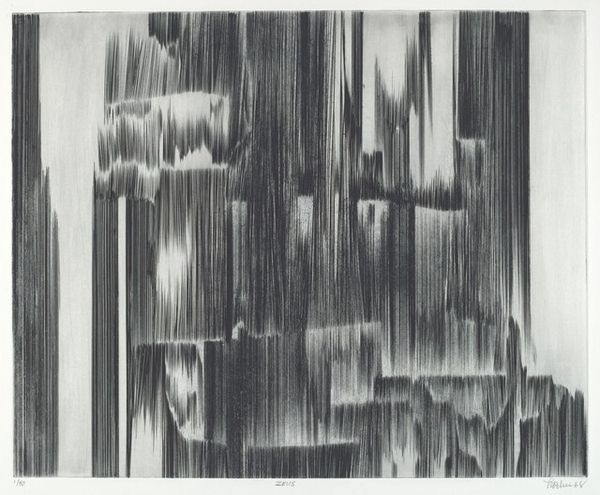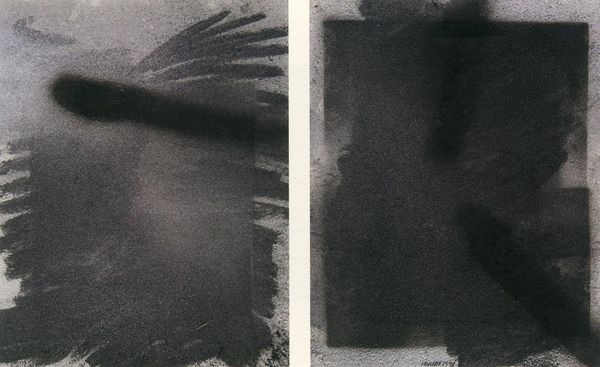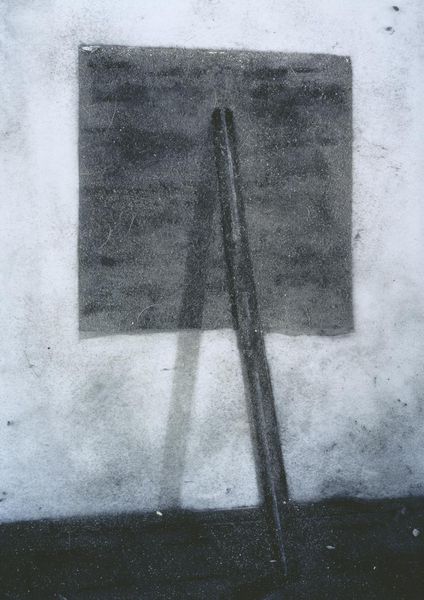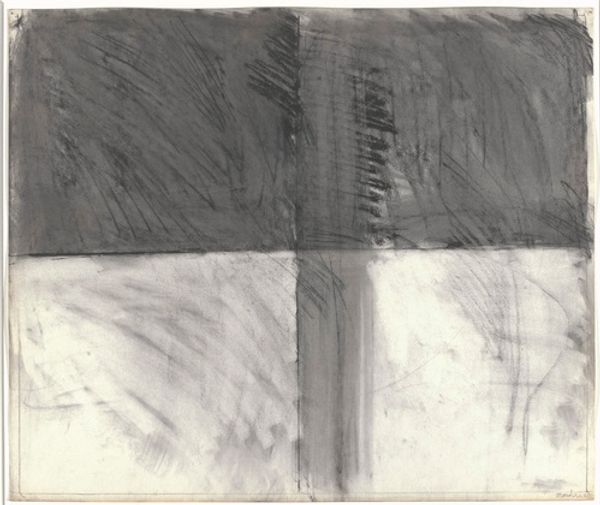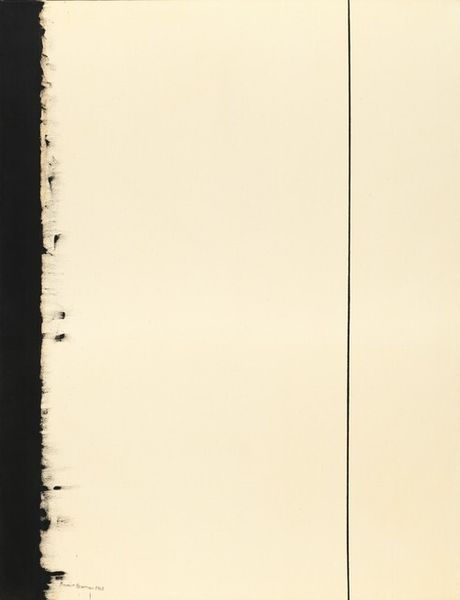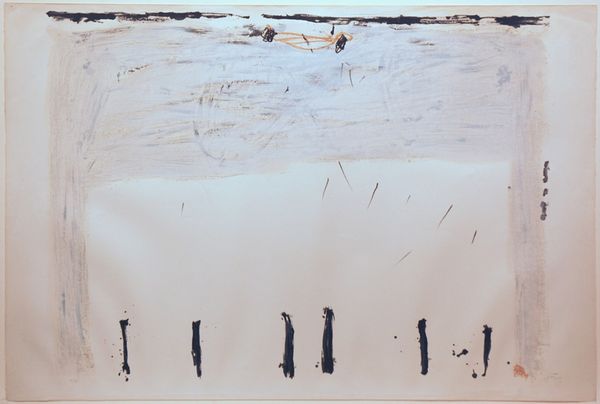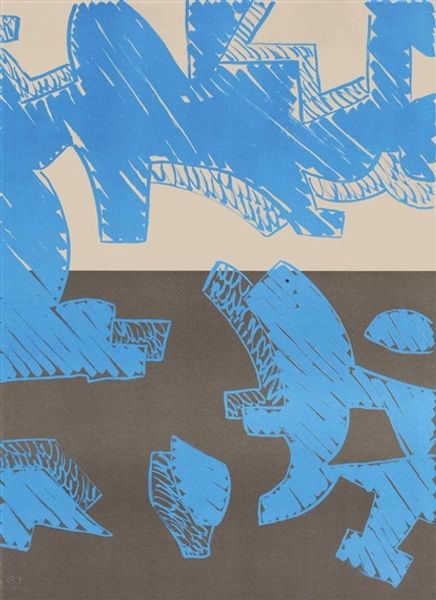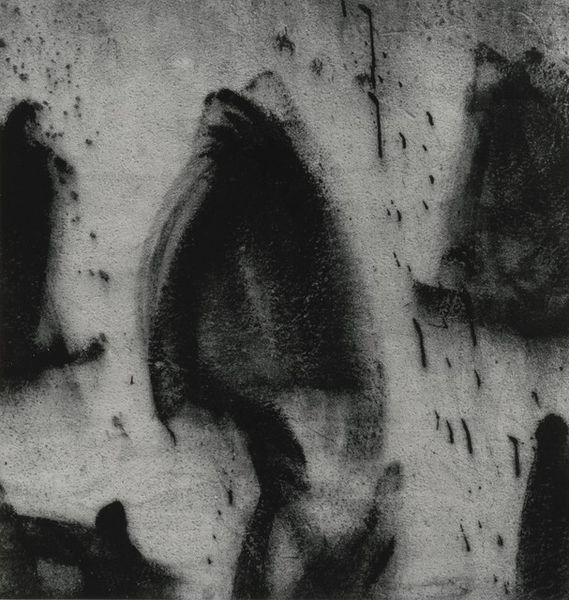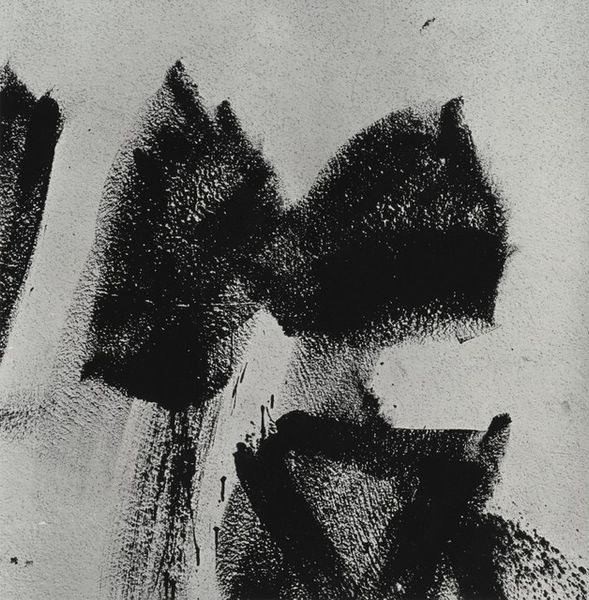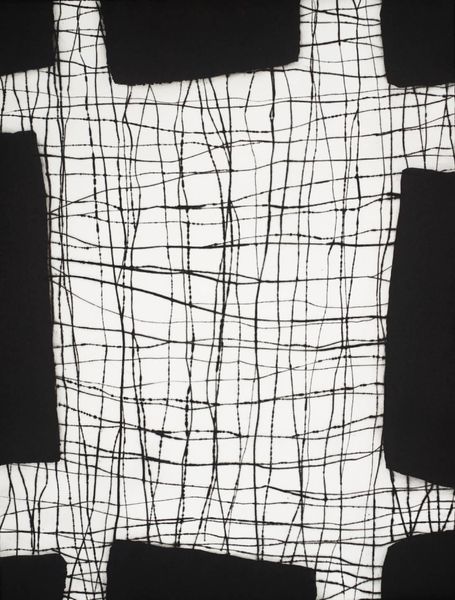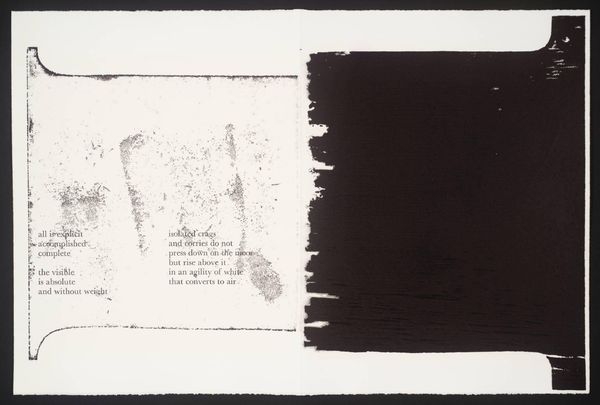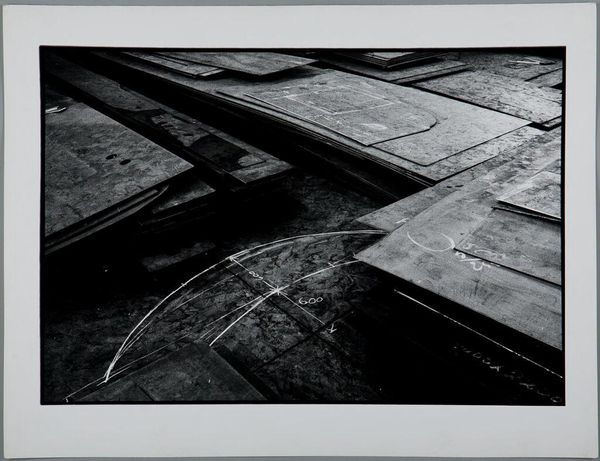
Dimensions: 510 x 662 cm
Copyright: Edward Ruscha,Fair Use
Curator: Edward Ruscha's screenprint "The End #1", created in 1993, strikes a stark and perhaps unnerving tone right away. It's currently part of the Tate Britain collection. Editor: Immediately, I'm drawn to the way the composition fractures. The bi-section of the picture plane disrupts any conventional reading. Then you have the degradation effect, the way it looks almost like damaged celluloid film, the vertical white lines, which creates a palpable sense of unease. Curator: That unease, I think, stems from Ruscha's choice of text and presentation. The gothic font, heavily associated with finality, coupled with what seems to be a decaying medium speaks volumes about cultural anxieties surrounding closure. There's a theatrical drama in the simple declaration of "The End," particularly in that blackletter type. It almost references film history, the end card of old movies. Editor: I agree. Structurally, the interplay of textures is fascinating. The softness of the sprayed text, the almost photographic background, contrasted against the sharp, clean lines cutting across. These visual elements, each carefully considered, enhance the impact. The split emphasizes a reading of 'end' as less a single event and more like a multifaceted, disrupted concept. The use of black and white enhances a stark, documentary quality that echoes film noir. Curator: And film itself is a strong metaphor here, isn't it? The film strip, the sense of projection and decay... Ruscha might be invoking the death of film, a premonition even. His work often dances on this line between text, image, and cultural premonition, inviting a consideration of time, memory, and how cultural symbols shift meaning over time. The way we imagine our cultural narrative will resolve—our endings. Editor: It prompts a deeper meditation on how we perceive conclusions. Less a full stop, more like…an abrupt break. It uses simplicity to get across complex thoughts about life cycles, both personally and collectively. Seeing "The End" written in such a way makes you wonder about endings, which are, ultimately, beginnings of some sort too. Curator: Indeed. And thinking about it further, I keep in mind how Ruscha’s symbols consistently allow us to confront complex cultural notions head on. Editor: Agreed. And structurally it is really well composed.
Comments
No comments
Be the first to comment and join the conversation on the ultimate creative platform.
